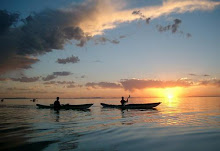In August my husband and I flew to California for my high school reunion. After an exhausting trip with many delays we finally arrived at our destination only to discover that our luggage had not made the trip with us. "No problem", says the attendant, "just fill out this form and we guarantee it will be delivered to your home in five days". At this point I had to step away from the discussion. We were 3,000 miles from "home" and what was worse, THE dress that I had shopped for weeks to find, and THOSE shoes that I paid dearly, oh and my best jeans were all in a bag that was God knows where. Plus I had no time to re-shop before the many scheduled events we had planned. Just as I thought I would really freak out, the attendant announced that our bags were in Salt Lake City and would be at the airport by early morning. At that point they would deliver our luggage to our hotel, at no charge, by the following evening. And to be fair, that is exactly what happened. Okay Delta, mistakes happen. We forgive you.
My grandmother in-law recently took a trip with her friend for a two week European cruise. Upon arrival to the ship they find that their luggage did not make it with them. "No worries", says the attendant, "we will deliver your luggage to the ship as soon as it comes in". So the ladies board the ship and buy essentials and hope their luggage will be at their next destination. So sets the theme for the entire trip.
Here I should mention that both women have impeccable taste and brought their best clothes and shoes for this amazing trip. I should also tell you that due to the promise that "the luggage is at the next port" they only bought a few small things hoping all along to get the clothes they had planned for and packed a month in advance.
Their luggage never made it to them. In fact, here we are a month later and still no luggage. The last anyone heard one set is in Amsterdam and the other is in Africa somewhere.
###
First Google search of the text "Delta Luggage" at 9:30 am September 30 yeilds nothing but the ways in which Delta is trying to fix various luggage problems. LOLSecond Google search of the text "Delta Luggage" at 2:45 pm. No blog on the first page, but a second search of the term "Do not trust Delta with your luggage" yeilded other blogs of the same theme! Double LOL.
10/4 search of all major search engines and no blog from me. However, this seems to be an issue for Delta. Click here to read about Delta blunders in just the past year!/a>
